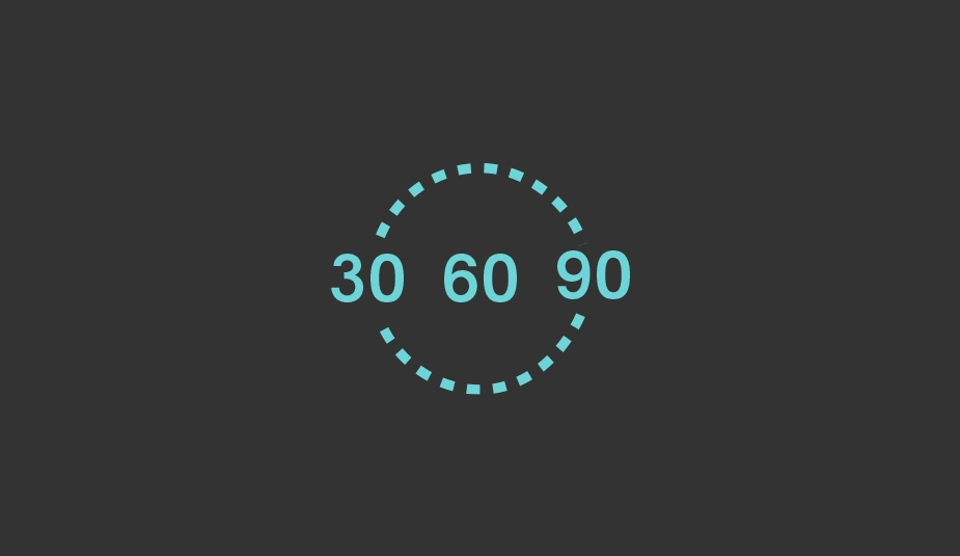Notice savings accounts - what are they?
If you’re looking for the most competitive interest rates, and don’t need access to your money right away, a notice savings account could offer the right balance. In this article, we explain how they work, and when to consider opening one.
This article is not advice. If you would like to receive advice on your savings and investments, consider speaking to a Financial Adviser.

Last updated: Wednesday, 11 December 2024
Notice savings accounts can be a convenient way to balance earning higher levels of interest with relatively easy access to your money, in contrast to fixed-term alternatives. But with most financial institutions providing several types of notice accounts, how can you choose the right one for you?
Comparing notice savings accounts is essential if you want to maximise your earning potential on your savings. In this article, we put notice accounts under the spotlight, and explore why they can be the perfect middle ground for ambitious savers.
What is a notice savings account?
Notice savings accounts usually offer a higher rate of interest than instant access accounts, but require you to give notice to your provider before you can access some (or all) of your cash.
What are the key features of all notice savings accounts?
- There's a delay between requesting a withdrawal and receiving your funds.
- Interest rates are variable, meaning the interest you earn can go up or down after you’ve opened the account.
The number of days’ delay on notice savings accounts
The shortest notice period is seven days, with the longest reaching as much as 120 days.
Notice accounts between 30 – 90 days are the most common.
Giving notice to a bank or building society
If you opened a 30-day fixed-notice savings account, you would need to tell your bank or building society that you want to withdraw your money 30 days before you need it. Depending on the provider that holds your account, you may need to notify them over the phone.
It’s important to check the terms and conditions on giving notice before you open an account to avoid unnecessary penalties.
Fixed-notice savings accounts differ from fixed-term accounts, the latter of which lock away your funds without access until the term expires.
What are the pros and cons of a notice savings account ?
The benefits of notice savings accounts
As with all savings the longer you leave your money untouched, the better the rate of return. This is thanks to compound interest. A notice savings account can encourage you to leave your money for longer, earning more interest.
Most banks continue to pay interest during the notice period, so you won’t lose out even if you need to withdraw. But financial institutions don’t have to do this, so make sure you’ve thoroughly checked the details relating to your account.
Unlike fixed-term accounts, you can pay money into your account whenever you choose.
There are also a wide range of notice accounts available, which can help you achieve your personal savings goals. As long as you give your provider the required notice, you can withdraw your money at any time without paying fees.
What are the disadvantages of notice savings accounts?
Unfortunately, if you need to access your funds before the notice period ends, there may be a penalty. Penalties usually involve the cancellation of any interest you’ve earned up to that point.
Notice savings accounts can have limits on the number of withdrawals you can make within a certain period. Additionally, you’ll have to notify the financial institution every time you intend to make a withdrawal, even if you took out a smaller amount than you said you would.
Depending on the account you choose, there may be a minimum deposit requirement.
| Pros | Cons |
| Interest rates are typically higher than instant access accounts. | Interest rates are often lower than fixed-rate accounts. |
| Banks sometimes pay interest during the notice period. | Only certain banks opt to pay interest during the notice period, so you should check your terms and conditions. |
| Notice periods are flexible, varying between seven and 120 days. | The number of withdrawals is often limited within a set period. |
| You can pay money in whenever you choose. |
Taking money out before the notice period elapses can cost you the interest you’ve earned. |
| The delay to accessing your funds can act as a useful disincentive to spend your balance, helping you save money. | You may need minimum deposit requirements to qualify. |
How to use a fixed-notice savings account
Once you’ve found a useful list of notice savings accounts, you can follow these steps to get started:
- Choose an account: Decide which type of notice account suits your savings needs and goals. Consider the interest rate offered, and what notice period you’ll need.
- Deposit your savings: Add your funds to start earning interest.
- Withdrawals: If you need to withdraw funds, contact your provider and let them know at the earliest opportunity.
- Receive the money: Once the notice period has ended, you’ll receive your money in a nominated account.
- Early withdrawals: Try to prevent early withdrawals where possible. But if this is unavoidable, remember you’ll likely be charged a penalty and lose the interest you’ve earned.
Notice accounts for long-term, smart financial planning
Notice accounts can be the perfect middle ground when saving for a long-term event or goal, such as a wedding, or a deposit on a home. Although the delay in accessing your funds may seem like a drawback, it can work to your advantage by helping you save more .
For example, if you have a large amount of savings, you might deposit the majority into a notice savings account to earn the most competitive levels of interest. The delay discourages withdrawals, incentivising you to leave your savings untouched.
If you simultaneously open an instant access savings account, you can leave a smaller deposit in there for unexpected expenses.
Pairing instant access and fixed-term accounts gives you a portfolio of savings options. Cash when you need it, an account that gives you better returns over the short-term, and income through interest for (re)investment or long-term goals.
Common types of fixed-notice savings accounts
Deciding which account is right for you depends on your financial objectives. Let’s compare notice savings account types, so you can weigh up your options:
- Long-term notice accounts: Accounts with notice periods between 90 and 120 days. By locking your money away for longer, you’ll usually be rewarded with higher interest rates, giving you the best return on your savings but the least flexibility.
- Short-term notice accounts: Accounts with shorter notice periods, usually up to 30 days. You’re still likely to get better rates compared to instant access accounts.
- Flexible notice accounts: Typically ranging between 45 to 75 days’ notice, flexible accounts offer more freedom to align your notice period with your savings goals.
Compare notice savings accounts: Flagstone vs. the High Street
Finding the best notice savings account for you depends on researching the offers available on the market. Thankfully, Flagstone makes it easy for you to explore exclusive rates from financial institutions including banks and building societies.
Frequently asked questions on notice savings accounts
Do I still earn interest during the notice period?
You will probably continue to earn interest during the notice period, but it depends on the financial institution you choose. If you’re unsure, it could be worthwhile checking the specific terms of the account with your provider.
Are there risks associated with notice accounts?
There’s minimal risk associated with depositing cash into a notice account, as it's covered by the FSCS (Financial Services Compensation Scheme).
If your bank or building society fails, the funds are protected up to a limit of £85,000 per person, per institution.
For higher deposits, it’s worth considering opening multiple savings accounts so all your funds are protected.
Can I deposit additional funds into a notice account after opening it?
Yes. Notice accounts let you top up your savings whenever you like.
How much can I withdraw from a notice account?
You can only withdraw the specific amount you gave notice for. If you withdraw anything that exceeds that amount, you risk penalty charges.
Learn: Glossary of common savings terms
Are notice savings accounts worth it?
If you’re interested in maximising the amount of interest you earn on your cash, then notice savings accounts can be very useful.
But it could be a good idea to ensure that a notice account forms one part of a wider savings portfolio, so that you avoid losing the interest you earn when the unexpected happens.
If you’re unsure about how to make the most of your money, speaking with a Financial Adviser can help.
Is a notice deposit a good investment?
It depends on your financial goals. For significant investments which don’t require sudden access to cash (such as helping your child with their first housing deposit, or a wedding) then notice deposits can offer competitive interest to help grow your savings.
Discover the perfect notice savings accounts for you
Flagstone, the UK’s cash deposit platform, gives you access to 60+ banks including exclusive rates. Grow your savings to build a portfolio of savings accounts with one application.
Explore our range of notice, instant access, and fixed-term accounts to maximise your interest.



